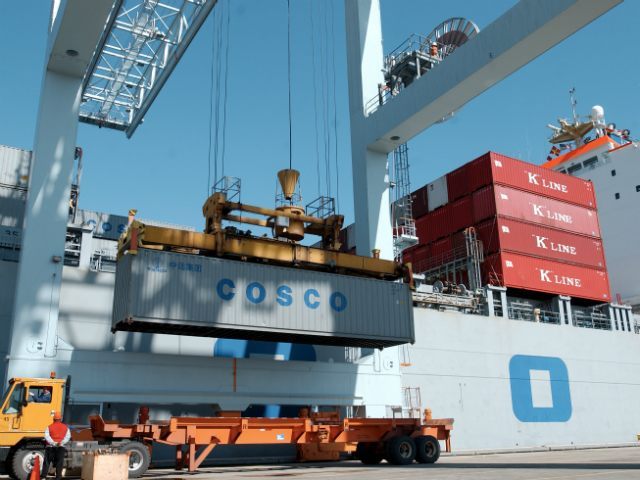Plans were submitted to the United Nations on Monday by a major maritime industry association seeking an international, cross-border carbon tax to be administered solely by the globalist body.
The International Chamber of Shipping (ICS) offered its mandatory tax scheme to the International Maritime Organization, the U.N.’s shipping program, for a recasting on carbon dioxide emissions.
The ICS proposes all vessels trading globally above a certain size should be taxed a set amount per metric ton of carbon dioxide they emit with collection and re-distribution of the funds by the U.N. alone under the assumption taxation can fix any problem it is set against.
China Joe is busy aiming his America Last wrecking ball at American energy. Meanwhile, Communist China built three times as much coal power capacity in 2020 as the rest of the world combined, despite pledges of carbon neutrality. https://t.co/YCphjiksj6
— Breitbart News (@BreitbartNews) February 4, 2021
Bloomberg reports the “Climate Fund” plan as proposed will close the price gap between zero-carbon and conventional fuels and will also be used to deploy bunkering infrastructure to help supply fuels such as hydrogen and ammonia.
“ICS believes that a mandatory global levy-based MBM is strongly preferable over any unilateral, regional application of MBMs to international shipping, such as that proposed by the European Commission which wishes to extend the EU Emissions Trading System to international shipping,” the group said in a statement.
The group also said the carbon levy will drive the creation of a market that zero-emission shipping is viable, Bloomberg reported.
Upward of 80 percent of global trade is carried via sea routes, according to Reuters.
As Breitbart News reported, a global carbon tax is not the first or only option put to the U.N. for consideration under the auspices of the Paris Climate Agreement.
Biden has gotten the U.S. back into the Big Green Scheme. pic.twitter.com/cRqO3ve8EB
— Breitbart News (@BreitbartNews) February 19, 2021
As far back as 2012 a global financial transactions tax and a global tobacco tax were also pushed by the U.N. or its subsidiaries, with the World Health Organization (W.H.O.), another U.N. subsidiary, behind the financial transaction tax.
The W.H.O. also backed the establishment of a global cigarette tax, with some of the tax’s proceeds going to fund W.H.O. activities.
Critics charge such global tax initiatives, if implemented, would not only undermine national sovereignty and prove far removed from those affected by them, thus limiting accountability.
They would also have an adverse economic and fiscal impact– and potentially, in the case of the tobacco tax at least, promote smuggling while failing to improve public health.

COMMENTS
Please let us know if you're having issues with commenting.